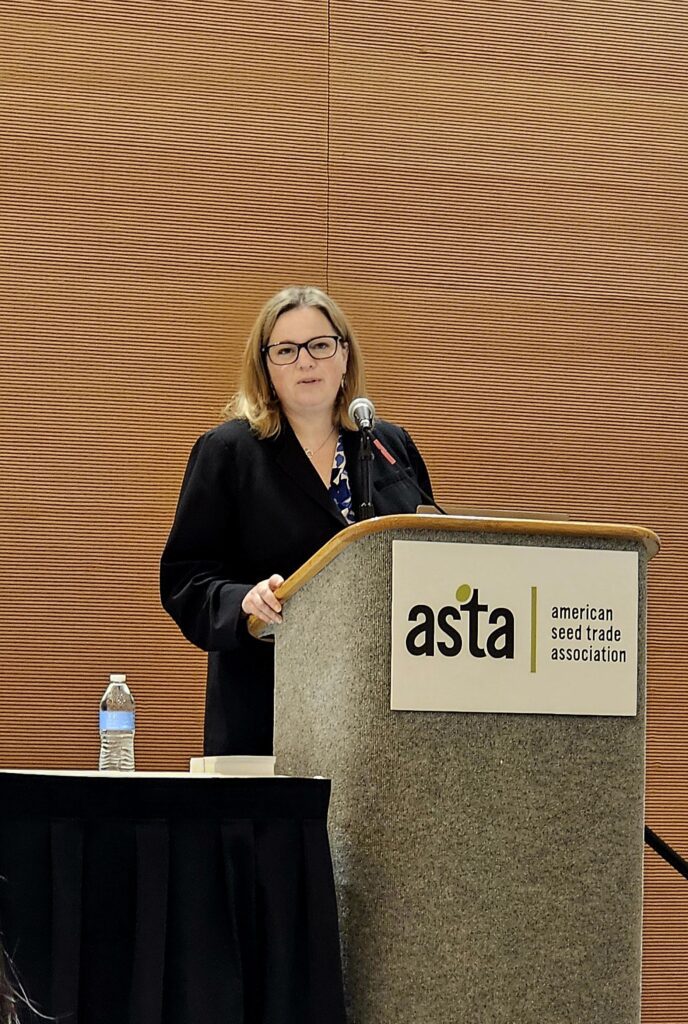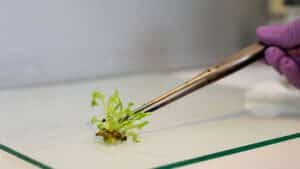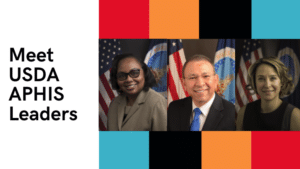At ASTA’s Vegetable and Flower Seed Conference Jan 27th, USDA Undersecretary Jenny Moffitt joined an international Innovation and Policy panel to discuss regulatory approaches to genome-edited plants. Here are some of the highlights:
During the Innovation and Policy session held Jan 27th at the American Seed Trade Association (ASTA)’s Vegetable and Flower Seed Conference in Monterey, California, USDA Undersecretary Jenny Moffitt spoke to a packed crowd. Undersecretary Moffitt, who oversees marketing and regulatory programs at USDA, provided insights into the evolving regulatory landscape and its implications for the seed industry.
Undersecretary Moffitt highlighted the collaboration between USDA, the Food and Drug Administration (FDA) and the Environmental Protection Agency (EPA) in her address.
“This framework that we have—the scientific-based regulatory framework—has allowed the United States to be a global leader when it comes to biotechnology,” Moffitt said. “Genetic engineering comes from a continuum of breeding methods farmers have been using for decades.”
She explained that USDA Animal and Plant Health Inspection Service (APHIS) has worked for nearly 40 years to hone regulatory expertise to create sound policies and regulations that foster innovation and ensure product and agricultural safety.
“In 2020, after decades of experience and advances, APHIS began shifting their regulations to recognize biotechnology as a conventional breeding tool when used to develop plants that are also achievable through traditional breeding methods,” she said. “The impacts of these exemptions have been substantial.”
Moffitt said that since 2020, small- to mid-sized companies, rather than large and well-funded entities, have dominated innovative biotechnology advances. She said that it goes beyond traditional row crop developers.
“Developers are innovating with plants like ornamentals, vegetables and fruit trees and traits aimed at improving nutrition and the use of natural resources,” she said. “Importantly, APHIS has kept their eye on implementing policies that enable producers to grow products that are best for them by promoting coexistence of biotechnology, conventional and organic crops.”
Regarding international collaboration, she emphasized, “We have had trilateral technical working groups between the United States, Mexico and Canada that meet regularly to discuss biotechnology advancements and regulatory decisions.”
In closing, Undersecretary Moffitt emphasized, “We must continue to prioritize agricultural innovation… Innovation favors progress over tradition, and innovation will allow us to adapt to an ever-changing world. At USDA, we continue to embrace innovation and the progress that it brings.”
During the Q&A session, Seed World U.S. editor Aimee Nielson asked Undersecretary Moffitt to talk about the importance of modernized regulations and their potential impact on the global competitiveness of the American seed sector. Undersecretary Moffitt replied by outlining the importance of good communications and making help available to those navigating regulations.
“Certainly, I’m not a seed developer, but I know as a farmer, being able to really approach a government that is working together, that understands what each other is working on … helps new companies, companies that are not just new, but also smaller in size and scope and don’t have the same resources, be able to navigate the regulatory framework and much more coordinated approach and be able to understand where to begin and how to navigate our regulatory framework here in the United States,” she responded.
Moffit was joined by global leaders including Petra Jorasch, manager of plant breeding innovation advocacy at Euroseeds; Janet Talling, head of genetic technology for DEFRA in the United Kingdom and Lauren Comin, director of policy for Seeds Canada. The group emphasized the need to harmonize regulatory language across the board.













